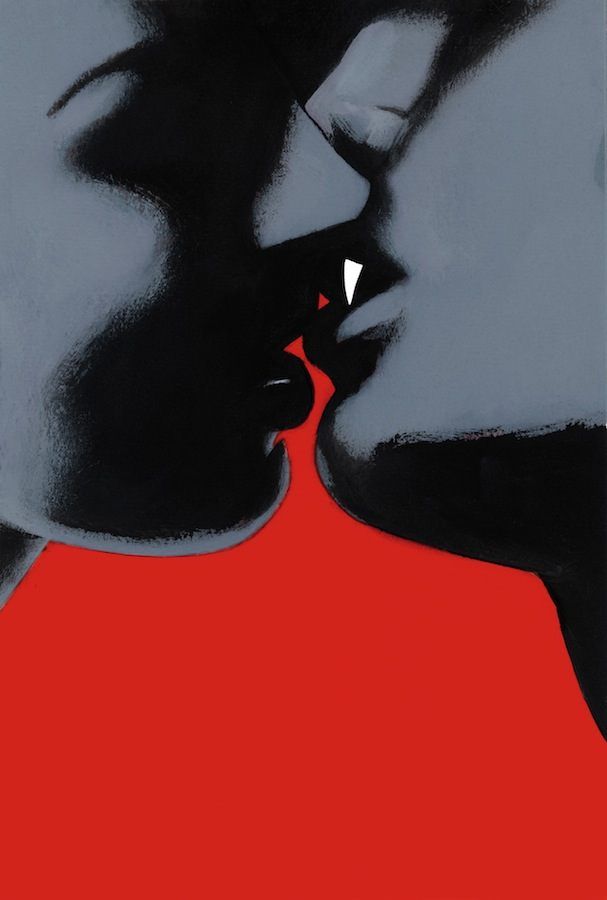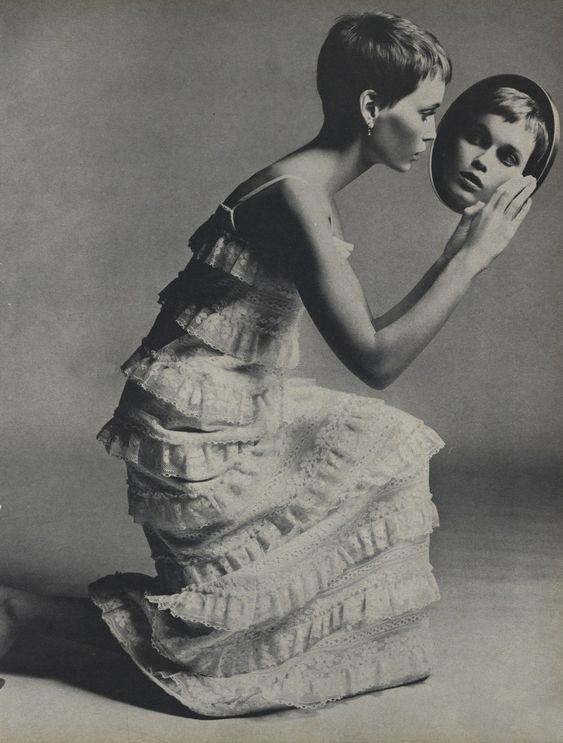 Having Venus opposite Saturn in your natal chart can profoundly influence your feelings of self-worth and self-esteem. This astrological aspect often manifests as a significant challenge in accepting compliments gracefully, especially when these compliments pertain to your appearance or style. If someone comments positively on your looks, you might react defensively or awkwardly, perhaps dismissing the compliment quickly or responding in a way that belittles yourself. This reaction typically stems from deep-seated insecurities and a pervasive sense of inadequacy related to the areas of life ruled by Saturn, where there is often a perception of lack or deficiency. You may have a psychological undercurrent suggesting that vanity is inappropriate and that physical appearance should not be a source of pride. Such notions could have been reinforced during early life, perhaps through critical remarks from others or societal messages underscoring the feelings of a lack of external beauty. These experiences can lead to a deep-rooted discomfort with your physical self and a feeling of being lesser in these aspects, regardless of your actual appearance.
Having Venus opposite Saturn in your natal chart can profoundly influence your feelings of self-worth and self-esteem. This astrological aspect often manifests as a significant challenge in accepting compliments gracefully, especially when these compliments pertain to your appearance or style. If someone comments positively on your looks, you might react defensively or awkwardly, perhaps dismissing the compliment quickly or responding in a way that belittles yourself. This reaction typically stems from deep-seated insecurities and a pervasive sense of inadequacy related to the areas of life ruled by Saturn, where there is often a perception of lack or deficiency. You may have a psychological undercurrent suggesting that vanity is inappropriate and that physical appearance should not be a source of pride. Such notions could have been reinforced during early life, perhaps through critical remarks from others or societal messages underscoring the feelings of a lack of external beauty. These experiences can lead to a deep-rooted discomfort with your physical self and a feeling of being lesser in these aspects, regardless of your actual appearance.
It seems that receiving compliments, especially those about your appearance, can feel like stepping on a minefield of awkwardness and defensiveness. Venus, the planet of love, beauty, and pleasure, is all about enjoying life’s aesthetic pleasures, while Saturn brings a sometimes rather heavy-handed dose of self-criticism. When someone tells you that you look good, Venus wants to bask in the glow of that appreciation, but Saturn, with its critical eye, steps in to remind you of past criticisms or deeply ingrained messages that your looks don’t matter or that vanity is a vice. This internal tug-of-war can make you recoil or deflect compliments, feeling uncomfortable or unworthy of such attention. But here’s the thing, your value isn’t just skin deep, nor is it confined to external validations. The discomfort you feel isn’t a reflection of your true worth but rather an echo of past conditioning. Perhaps in your early years, you were told not to be vain or that your looks weren’t important. Maybe someone criticized you, leaving an indelible mark on your sense of self. You have to practice self-love and acceptance, even when it’s really hard. This will help gently hush Saturn’s harsh comments and let Venus shine a little brighter. When someone says you look good, let it be a reminder of your worth, a nod to the harmony between your inner and outer self. You might start by acknowledging the compliment internally before you respond. Take a deep breath, let it sink in, and then simply say, “Thank you.” No need to deflect or diminish. Allow yourself to bask, even briefly, in the positivity directed your way. Over time, this practice can help soften Saturn’s grip and let Venus’s warmth permeate your sense of self.
The experience of having Venus opposite Saturn in your natal chart can feel starkly different compared to other Venus aspects that are often described with much more glamour and magnetism. This contrast can be particularly poignant when readings of other Venus placements talk about charisma, attractiveness, and an effortless draw of admirers, portraying these individuals as almost magnetic in their powers. Such descriptions might make your own Venus-Saturn challenges feel even more isolating or disheartening, as if the astrological interpretations themselves only repeat the sense of lack or rejection you might experience in real life.
Liz Greene’s work, Saturn: A New Look at an Old Devil, points to the difficulty of this placement, particularly noting how it can be one of the most painful to handle due to its inherent sensitivity to rejection. You may find that your Venus-Saturn aspect resonates with a history of painful relationships that have impacted your self-confidence, perhaps through experiences of perceived failure or rejection. However, despite these challenges, Greene also points towards the potential for major personal growth and transformation. The key lesson involves finding happiness, pleasure, and harmony within yourself, irrespective of external relationships or validation.
The “nagging discontent” that Greene also mentions can often feel like a permanent shadow over your ability to feel joy and satisfaction. Yet, this isn’t a life sentence. Over time, and with conscious effort and perhaps reflective work, you can transform these feelings. The goal is to develop a sense of self-worth that isn’t dependent on how others perceive you but rather on your internal metrics of value and happiness. This transformation isn’t necessarily easy and requires confronting deep-seated beliefs and past hurts, but it is immensely rewarding.
It’s easy to look at those other Venus aspects, all sparkling with charm and magnetism, and feel a bit like Cinderella before the fairy godmother shows up. It’s as if life handed out all the glitter to others and left you with a stern look and a sensible pair of shoes. We astrologers do tend to wax lyrical about those other Venus placements—oh, the magnetism, the charm, the effortless attraction! And then we come to Venus-Saturn, where the spotlight seems to cast shadows instead of illuminating your innate beauty. Astrologer Liz Greene doesn’t shy away from laying bare the trials and tribulations of this aspect. It’s true, the sensitivity to rejection and the lingering pain of past heartbreak can cast long shadows over your sense of self-worth and capacity for joy. But here’s the secret: the depth of your Venus-Saturn placement isn’t a curse; it’s where you can achieve your most growth. Those glamorous Venus aspects may draw moths to their flame, but your flame, though it may burn more quietly, is steady, enduring. Your path may be marked by introspection and a quest for authenticity, which, while challenging, leads to a more stable and lasting sense of self-worth. You have the potential to transform those feelings of inadequacy into a bedrock of self-respect and inner harmony that isn’t easily shaken by external circumstances. The lesson here isn’t just about finding pleasure and harmony within yourself, though that is a noble pursuit. It’s about recognizing that your path, with all its bumps and bruises, is carving out a space for a love that is real, enduring, and deeply fulfilling. Though it may feel solitary at times, is also empowering. It’s about discovering that you are enough, just as you are, without the need for external validation. So, when you find yourself envying those who seem to shine so easily, remember this: their light may be bright, but your glow is something deeper, something that can’t be dimmed by the passing whims of fate. Your Venus-Saturn with all its complexities is not a sentence; it’s an invitation to a deeper, more meaningful understanding of love and self-worth.
Venus in a hard aspect with Saturn, particularly in women’s charts, often involve a deep ambivalence towards appearance and vanity. There’s a push-pull between neglecting one’s Venusian qualities, like charm and attractiveness, and a deep awareness of these very traits. For women, especially, societal pressures about appearance can add layers of doubts; they are often raised to be mindful of how they look, yet they may recoil at the idea of being seen as vain or overly concerned with their looks. When Venus is constrained by Saturn, you might unconsciously reject you own Venusian attributes, leaving these qualities underdeveloped or “stuck” in the past. This can manifest as a lack of self-love or a refusal to nurture your aesthetic and relational desires, perhaps due to past rejections or loneliness.
These feelings of rejection can feel like they’re setting the tone for your life, leading to a protective withdrawal from deeper engagement in relationships to avoid further pain. However, the silver lining in this configuration lies in the potential for growth and the formation of deep, meaningful, and long-lasting relationships. Venus in hard aspect with Saturn doesn’t deny relational fulfillment but suggests that such fulfillment comes through overcoming fears of vulnerability and rejection. The lesson here is about facing these fears and gradually opening up to others, which can be transformative. Your Venus, though challenged, can become a source of strength. It lends depth, loyalty, and a grounded quality to relationships that many crave but find elusive. This grounded Venus is not flighty or superficial but is extremely loyal and capable of enduring love that can weather the storms of life. You can work towards developing these Venusian qualities more fully. It might involve giving yourself permission to explore and express these aspects without fear of judgment or rejection.
It’s not that you’re unaware of your looks; it’s more about the discomfort with the idea of being perceived as vain. Vanity, after all, is a cardinal sin in the eyes of Saturn, who values substance over superficiality. You may even downplay your attractiveness, not because you don’t recognize it, but because you fear it could overshadow the deeper, more meaningful aspects of who you are. Now, women, in particular, are often socialized to place a high value on appearance, which can make this aspect even more challenging. However, neglecting your Venusian qualities—those that celebrate beauty, pleasure, and love—can leave you feeling stuck. It’s like having a garden that you never water because you’re so afraid that your blooms won’t measure up to others that you never let them blossom. Instead of nurturing your own unique beauty, you compare your flowers to those in other gardens, never realizing the potential for your own to be just as stunning, if not more so, if only given the chance to grow and flourish. Those Venusian qualities need your attention and care to grow, just as much as any other part of your psyche. Think of it this way: you’re not just a person with a challenging Venus-Saturn aspect. You’re a soul on a journey toward self-acceptance and deep connection. Your potential for long-lasting, meaningful relationships is immense. To unlock it, you must first believe in your own worthiness and let go of the defensive walls that no longer serve you. Imagine Venus as a flower in a garden. Saturn might build a fence around it for protection, but it’s up to you to open the gate and let the sunlight in. Water it with self-love, tend to it with patience, and watch it grow into a magnificent bloom that adds beauty and joy to your life.
The interaction of Venus and Saturn in your natal chart can set the stage for challenges in love, both in giving and receiving it. Saturn’s influence often introduces delays and restrictions, and when it touches Venus, the planet of love and beauty, it can initially manifest as a sense of being unloved or unworthy of love. This feeling might not always be at the forefront of your consciousness but can deeply influence your interactions and self-perception. Many with Venus-Saturn aspects come into the world carrying a heavy feeling of unloveability. As a result, there’s a tendency to project these feelings outward, mistakenly believing that it’s others who are indifferent or incapable of loving you. This misunderstanding can lead to a defensive posture in relationships, where you might erect barriers to protect yourself from anticipated hurt or rejection. Ironically, these very defenses can prevent the genuine connection and affection you deeply desire and need.
Saturn’s role is often to teach through challenges and limitations. For those with Venus-Saturn aspects, the lesson involves learning to love and be loved genuinely and freely, without conditions or expectations (“no strings attached”). This process usually requires significant introspection and personal development. It might involve confronting and working through deep-seated fears and insecurities that compel you to either overly demand love or to try to possess it out of fear. Wherever Saturn is in the chart, you feel stuck in an old, wounded place, unable to move forward and fully develop in areas affected by Saturn. The sense of awkwardness, underdevelopment, and feeling lesser than others are reflections of these unhealed parts.
It’s as if Saturn himself wrapped you in a cocoon of doubt, delaying your realization of self-worth and your ability to give and receive love freely. Saturn’s influence is like an overprotective guardian, putting up walls around your heart to shield you from potential hurt. These walls, while intended to protect, also isolate, keeping out the very love that could heal and transform you. It’s a paradox, isn’t it? Wanting to be the light, expressive Aphrodite but feeling so vulnerable that you build defenses so high that no one can breach them. The journey to realizing your essential worth can be long and winding, filled with internal work and the peeling away of layers of fear and defensiveness. It’s easy to project these feelings outward, believing that it’s others who don’t care enough, others who don’t love you sufficiently. Saturn is a stern but fair teacher. He delays but does not deny if you put in the work. The lesson: the love you seek from others must first be found within. Your task is to thaw that frozen part of your heart, to revisit those old wounds not with the aim of wallowing in them, but with the intent to heal and grow beyond them. This process can feel like trying to defrost an iceberg with a candle, slow and painstaking, but every bit of warmth you generate counts. Learning to give and receive love without strings attached is your soul’s curriculum. It’s about recognizing that your worth is not contingent upon others’ perceptions or validations. It’s about daring to be vulnerable, to lower those defenses and allow the light of love to penetrate.
This can be terrifying, especially when past hurts loom large, but it’s also incredibly liberating. The deep, compulsive need to be loved, the fear of rejection, the tendency to possess or demand love—these are all manifestations of that frozen place within you. They are signs that the little you, still wounded and afraid, needs your adult self to step in with compassion and reassurance. Imagine yourself as both the wounded child and the wise, nurturing adult. The child within needs to be heard, needs to be reassured that love is not conditional, that vulnerability is not weakness, and that being unloved was never a reflection of your worth.
The adult you can provide that reassurance, can offer the warmth and care that Saturn seemed to withhold. In all Saturn areas, there’s a sense of being a late bloomer, of feeling awkward and less developed. But here’s the beauty of Saturn’s influence: those areas, once worked through, become your greatest strengths. Your Venus, when allowed to thrive, can become a source of lasting beauty and deep, enduring love. Allow love to seep in, bit by bit, melting the icy walls Saturn has built.
With Venus opposite Saturn, you might find yourself hypersensitive to the subtleties of your interactions, constantly on the lookout for signs—spoken or, more often, unspoken—that your affection isn’t reciprocated. This can lead to a need for continuous affirmation, where you might demand constant proof of your partner’s feelings. Such demands can strain relationships, as partners may feel overwhelmed or unable to satisfy the continuous need for reassurance. The dynamics of Venus-Saturn can indeed vary; you may find yourself in the role of the one who loves more or the one who struggles to accept love.
Men with this placement might feel they are always the more affectionate party, perhaps attracted to partners who seem emotionally unavailable or distant. On the other hand, women with Venus-Saturn aspects might find it difficult to open up and fully accept or return the warmth offered by their partners. They might also be drawn to partners who reflect Saturnian qualities—reserved, serious, or restrictive—thus perpetuating a cycle where their needs for affection and validation are unmet.
The attraction to partners who seem unable to meet your emotional needs can be a reflection of your internal conflicts and fears about worthiness and loveability. It can take a long time to feel truly secure in a relationship and to believe that you have genuinely won your partner’s affection. The recurring theme often involves one partner predominantly giving love while the other is the object of that love, embodying a skewed dynamic that can hinder mutual growth and satisfaction. Learning that love is not a one-sided effort but one of give and take is a vital lesson for those with Venus opposite Saturn. It requires understanding that both partners can and should contribute actively to the relationship’s emotional depth and stability.
Falling for Saturn-like partners who mirror your inner struggle is another classic pattern. These relationships often feel like they are perpetually just out of reach, never quite fulfilling your deep need for emotional security and affirmation. It’s as if you’re trying to quench your thirst from a well that’s run dry. The Saturn influence can make these partners seem aloof, withholding the very affection and validation that you crave. The idea that one partner is the lover and the other the beloved is a simplistic view that Saturn challenges you to outgrow. Begin by acknowledging that your need for constant reassurance stems from past wounds, not from your current reality. When you catch yourself seeking external proof of love, take a moment to provide that reassurance to yourself instead. Remind yourself of your worthiness and your capacity to be loved just as you are. Share your fears and vulnerabilities with your partner, not as accusations or demands, but as invitations for understanding and connection. Celebrate the small victories along the way—the moments when you feel secure, the instances when you allow love to flow without fear of rejection.
This aspect might also lead you to make yourself indispensable to loved ones, using your willingness to invest time and resources as both a measure of your own affection and an expectation of the affection you receive. This behavior isn’t just about being generous; it’s a way to maintain a sense of control within relationships, ensuring that you are valued and needed. The focus on time as a significant indicator of love is very telling with Venus-Saturn aspects. You tend to gauge the health and seriousness of a relationship by how much time your partner is willing to spend with you. Similarly, you might show your commitment by dedicating substantial time to your partner, viewing it as a clear expression of love and care.
Insecurities About Attractiveness
In terms of appearance, this aspect might drive a woman to adopt a highly curated, even over-the-top appearance as a way to manage insecurities about attractiveness and worthiness. The use of makeup and a carefully maintained appearance can be much more than a beauty routine; it can be a critical way to feel accepted and loved. This behavior may stem from an internal belief that one is not inherently pretty or valuable enough, and there is a sort of overcompensation through physical appearance. This need for overcompensation can be understood as an attempt to manage the fear of rejection and the need for validation. By ensuring you meet or exceed perceived beauty standards, you may feel you are safeguarding yourself against the pain of not being loved. However, this approach often masks the underlying issues rather than addressing them, potentially leading to relationships where surface appearances are emphasized over deeper emotional truths.
For some women with this aspect, the external presentation becomes a focal point, a way to assert control and seek validation. The use of make-up, a crafted appearance, the effort to align with societal standards of beauty—all these can be ways to feel accepted and loved. This dedication to appearance, while often seen as striving for beauty, can sometimes mask an inner sense of inadequacy. It’s not just about looking good; it’s about constructing a facade that compensates for the perceived lack within. The beauty queen archetype, with her poised and polished exterior, might be overcompensating for a deeply buried feeling of not being enough. But let’s not be too hasty to judge. The quest for beauty, the effort to look pleasing, can also be a form of self-expression, a way to bring Venus’s love of aesthetics into the real world. The key is understanding the motivation behind it. Are these efforts driven by joy and self-love, or by fear and the need for external approval? Your Venus-Saturn placement invites you to explore these questions deeply. Can you find ways to express your femininity and sexuality that feel authentic and empowering, rather than performative and defensive?
With a Venus-Saturn aspect, you may anticipate disappointment or betrayal, fearing that any love you find could easily crumble. This fear can lead to a reluctance to engage in relationships at all, as a form of self-protection from potential pain. In response to these fears, you might choose to deny yourself the pursuit of relationships entirely. By not engaging, you avoid the risks associated with vulnerability. This withdrawal can become a self-fulfilling prophecy where you feels unloved, not because you are unlovable, but because you have not allowed anyone close enough to genuinely love them.
You might find yourself staying in unsatisfactory or even painful relationship due to the fear of the unknown. The familiarity of discontent feels safer than the vulnerability required to seek a happier partnership. This settling can lead to long-term dissatisfaction and a sense of stuckness in unfulfilling dynamics. Or, you may continually be in pursuit of love but feel as if you are constantly hitting a brick wall. Your efforts to find and maintain love may feel thwarted, leading to frustration and a sense of inadequacy.
If you are not naturally attuned to Venus’s qualities due to its restriction by Saturn, engaging in romantic or affectionate behaviors can feel awkward or unnatural. This can make dating or expressing affection feel like perpetually starting from scratch, often accompanied by old feelings of inadequacy regarding your looks or desirability.
Love is both a yearning and a fear, a source of longing and potential pain. The themes of denial of love, control, love and punishment—are all too familiar. It’s as if your heart is caught in a perpetual state of winter, wary of the spring thaw that brings both the promise of growth and the risk of vulnerability. The fear that love might wither, that it’s somehow not truly there for you, can lead to a range of coping mechanisms. Some may build walls so high and impenetrable that love can’t get through. The lament that “nobody loves me” becomes a self-fulfilling prophecy. Others might settle for unsatisfying relationships, preferring the known pain to the unknown risks of seeking something better. The familiarity of pain can become a twisted form of comfort. Then there are those who tirelessly pursue love, only to feel as if they’re hitting a brick wall. The effort to express affection and let Aphrodite loose can feel like an uphill battle, especially when Venus’s natural flow is stifled by Saturn’s stern grip. It’s as if you’re always starting out, never quite feeling at ease, perpetually struggling with old insecurities about your looks and worth. When Venus is locked down, a part of life can feel like it’s been missed. The spontaneous joy of love, the carefree expression of beauty and affection—these can seem like foreign territories, difficult to experience. It’s easy to take it all too seriously, to let Saturn’s solemnity overshadow Venus’s playful nature. But here’s the thing: this seriousness, while sometimes burdensome, can also be a tremendous asset for long-term relationships. The commitment, the depth of feeling, the willingness to work through challenges—these are qualities that can make a relationship not just last, but thrive. So, how do we melt these icy waters and find a way to let Venus shine? The first step is recognizing and naming your fears. Fear of rejection, fear of a lack of love, fear of vulnerability—these are powerful emotions, but they don’t define you. Start small by allowing yourself to be vulnerable in tiny ways. Share a thought, a feeling, a moment of affection. Each small step builds the foundation for greater openness. Venus’s energy begins with you. Cultivate self-love, not in a superficial way, but in a deep, affirming manner.
The realization that you’ve been taking things, and yourself, far too seriously can be a freeing revelation. However, there’s also the challenge of allowing yourself to experience pleasure. The Venus-Saturn dynamic can make it difficult to enjoy life’s simple joys. Sometimes, you might deny yourself pleasure, money, or even nice things. This self-denial can inhibit your social life, creating a vicious circle where isolation reinforces feelings of unworthiness. To break free from this cycle, you need to actively cultivate self-love and self-care. Here’s how you can start: Allow yourself to indulge in the things that bring you joy. This doesn’t mean reckless extravagance but finding balance. Treat yourself to nice clothes, not as a mask, but as an expression of who you are and what you value.
Also, recognize that you deserve good things simply because you exist. Your worth isn’t contingent upon external achievements or validations. Celebrate your inherent value. Make space for joy and playfulness in your relationships. Plan fun activities, laugh together, and allow the lighter aspects of love to shine through. This can help balance Saturn’s weighty influence. Allow yourself to enjoy your money in ways that enhance your life. This could be buying something that makes you feel good or investing in experiences that bring you happiness. Make an effort to go out and socialize. Building a supportive social network can break the cycle of isolation and reinforce your sense of belonging. Carefully chosen things that reflect your tastes and values are affirmations of your self-worth.
The Heavy Relationship
As Liz Greene points out, there’s a risk for those with this aspect to find themselves in relationships that become burdensome or deeply unsatisfying. You might stay in these situations out of a sense of duty or fear of loneliness, despite the unhappiness it causes. The relationship is fundamentally flawed, and understanding when it’s healthier to step away rather than persist out of obligation could be a another lesson for you.
Women with this aspect may find themselves burdened by a partner who makes them unhappy, staying out of a sense of duty or fear of loneliness. Saturn’s influence can make the path of love seem fraught with pain, defensiveness, and fear, taking you back in time to revisit old wounds. Building feelings of self-worth and practicing self-love can seem like a slow, uphill climb. But it’s through this painstaking effort that you’ll attract the right kind of substance into your life. Look for partners who embody the qualities you value: responsibility, stability, and a willingness to work through challenges. Saturn appreciates substance over flash, so aim for relationships that are built on a solid foundation. While you’re naturally inclined to stay out of duty, remember that joy and fulfillment are equally important. Seek a balance where your sense of responsibility doesn’t overshadow your need for happiness. Be open to partners who might gently push you out of your comfort zone. Know that nothing worthwhile comes easy, but the rewards of enduring love and deep connection are worth the effort. Your journey, though challenging, is leading you to a place of greater understanding and fulfillment. Saturn’s lessons, though tough, ultimately lead to a richer, more meaningful experience of love. You are on a path of deep transformation, and every step you take is bringing you closer to the love and happiness you deserve.











